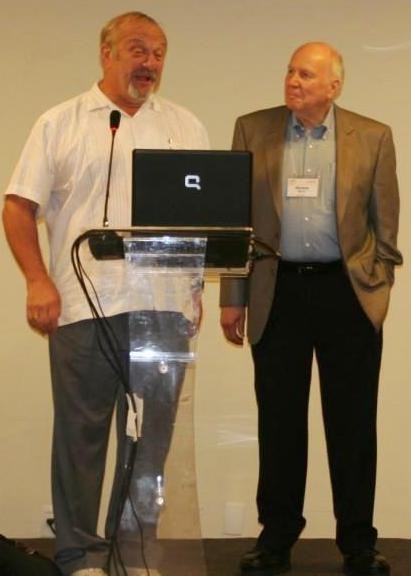Watts replaces George Winn, who recently stepped down as executive secretary of the IPC, a position he had held for the last four years. The IPC Executive Committee also renamed the title from executive secretary to secretary general.
Before his retirement from NCC, which is based in Washington, D.C., Watts served as its president for 39 years. Prior to joining the organization, he worked as a legislative assistant to two members of the U.S. Congress.
During his career, Watts served as a member of the U.S. Chamber of Commerce Food and Agriculture Committee, president and director of the Commodity Club of Washington, and as chairman of the Food Group. He served on the U.S. Department of Agriculture's National Agricultural Research, Extension, Education and Economics Advisory Board from 2006-2009, and was an advisory member of the Board of Directors for the International Poultry Development Program joint-venture broiler project in Russia (Elinar Broiler).
Watts received the Poultry Industry Lifetime Achievement Award from the National Poultry and Food Distributors Association in January 2002, the Merial Distinguished Poultry Industry Career Award in 2009 from the Poultry Science Association, the Harold E. Ford Lifetime Achievement Award presented by U.S. Poultry and Egg Association "for exemplary service to the poultry industry" in January 2011, and was inducted into the Meat Industry Hall of Fame in November 2011.
Watts holds a degree from the University of Georgia, where he studies journalism and political science. He currently serves as a member of the Board of Directors of Case Foods and a consultant for Arrowsight, Inc. He and his wife Barbara reside in Alexandria, Va.
FEED GRAIN SHORTAGES
The IPC is concerned that the current world grain shortage caused by prolonged drought in the soybean and corn producing regions in the United States, coupled with excessive rains in Northern Europe, is having a significant impact on poultry meat production worldwide.
Global commercial poultry production depends on feeds produced from corn, soy and other grains, all of which are important inputs. Because of the U.S. drought, global corn and soybean supplies are insufficient, IPC says. Meanwhile, the group says financial speculation has worsened the situation, sending corn and soy prices to record levels, as well as driving up the price of alternative feed crops, such as wheat. Poultry production consumes 44 percent of the world's supply of food animal feedstuffs.
Given these circumstances, the IPC concludes that:
1. The high prices of feed grains are pushing up the cost of producing commercial poultry. Poultry price increases are inevitable, which companies are forced to pass on to consumers to remain financially solvent. Further increases in the cost of grain will assuredly lead to additional cuts in production.
2. Accordingly, governments should take whatever measures are available to prevent any further increases in grain prices. Poultry meat has historically been the world's cheapest large-scale source of animal protein, and has played a central role in providing consumers in poorer nations with access to protein. Continued high grain prices threaten food security, especially in low-income countries.
3. Furthermore, authorities should discourage financial speculation involving feed grain prices. Such speculation by entities not directly tied to the food-producing sector has generated even stronger price volatility in the feed sector. Derivative markets should not be used to speculate financially for such an important commodity as food.
4. Governmental policies that subsidize or encourage the production of renewable fuels from grains and cereals should be revised in order to avoid the risk of food shortages.

George Watts, left, new Secretary General of the IPC (photo courtesy the IPC)
http://accesswdun.com/article/2012/8/252005
